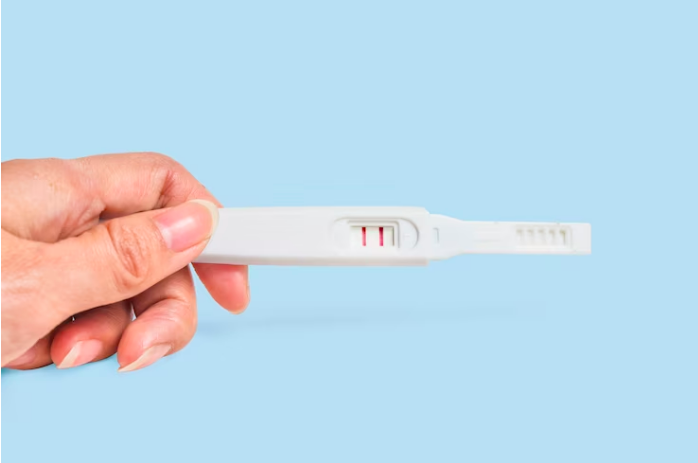Finding out that you’re pregnant is a life-changing moment that can cause a gush of varying emotions. Regardless of what you’re exactly feeling, you’re most likely wondering what you are supposed to do next. Here’s a list of the next steps you should take after your pregnancy test turns out positive.
Confirm your results
Home pregnancy test kits are highly accurate when used correctly. But there’s no harm in taking a second test to confirm your results, right?
Blood tests are even more accurate compared to home pregnancy tests. Your healthcare provider may ask you to take a blood test to confirm whether you’re pregnant.
Let the news sink in
A positive pregnancy test result can make you feel a range of different emotions. Excitement, nervousness, joy, fear — all these emotions are valid. It’s normal to feel overwhelmed once reality sets in. Give yourself time and space to react in whatever way feels natural.
If you have a partner or spouse, make time to sit down and talk about your pregnancy. Be honest about how you’re feeling and what are your fears and worries. Chances are, they feel the same way as you.
But if you find yourself experiencing severe mood swings, anxiety, or bouts of depression, it’s best to consult a mental health professional immediately. What you’re dealing with may be more serious than an adjustment period.
Seek prenatal care
The first prenatal visit often happens around the eighth week of pregnancy. However, you may want to see the doctor sooner if you have an existing medical condition, had a miscarriage before, or are experiencing abdominal pain or other unusual symptoms.
Expect the following things on your first appointment:
- medical and social history, reproductive and gynecologic history, and family history
- physical exam
- ultrasound (to date the pregnancy)
- lab tests
Find the right provider
Pregnancy is going to be a long journey, and you need to choose to seek prenatal care from either an ob-gyn or a midwife. Your decision will depend on your needs during pregnancy and delivery.
If you plan to get an epidural or you have a pre-existing medical condition, then it may be better for you to see an ob-gyn. For those hoping for a low-intervention vaginal delivery or plan to have a home birth, a midwife is a great option.
Focus on self care
During the first few weeks of pregnancy, you probably won’t notice much changes on the outside. But on the inside, the baby’s organs and body parts are beginning to form.
To have a healthy baby and pregnancy, you’ll need to make sure your body is in tip-top shape. Here are just some of the things you can do:
- Take prenatal vitamins
- Eat plenty of fruits, vegetables, lean meat, and whole grains
- Drink plenty of water
- Limit your caffeine intake to no more than 200 mg a day
- Avoid alcohol, nicotine, and illegal drugs.
- Avoid raw fish, unpasteurized milk or dairy products, and cold cuts
- Avoid cleaning your cat’s litter box.
If you want to exercise during your pregnancy, consult your healthcare provider about which type of physical activities are safe for you.
Know what to expect
Your body (and baby) will go through a lot of changes week to week. Being aware of those changes and what to expect will help ease anxiety and prepare you for what’s about to come. It’s also important to know what symptoms are unusual so you know when it’s time to call your care provider.
Spend time browsing through magazines, books, online resources, and maybe even listen to podcasts to know about what’s in store for the next several months. Regardless of the type of resource you plan to consume, make sure that the writer or host has the proper credentials. This is very important when it comes to medical advice. You’ll want to avoid false and baseless information.
Find support
Support is very important for anyone going through a pregnancy. Many couples wait for the 13th week before announcing their pregnancy because that’s when the risk of miscarriage significantly goes down. Meanwhile, some may already want to spill the beans to their immediate family and friends around the sixth to eighth week.
Above all, pregnancy is your news to share. There’s no right or wrong way, or worst or best time to announce it. Do it only when you’re ready.
Sources:
Weiss, R. (January 9, 2022). What Happens After You Get a Positive Pregnancy Test?. VeryWellFamily. https://www.verywellfamily.com/youre-pregnant-now-what-2759711
Lindberg, S. (May 11, 2020). Your Pregnancy Test Is Positive: What Next?. Healthline. https://www.healthline.com/health/pregnancy/positive-pregnancy-test-what-next
Alpert, Y. (June 16, 2021). I Got a Positive Pregnancy Test—Now What?. The Bump. https://www.thebump.com/a/positive-pregnancy-test-now-what



